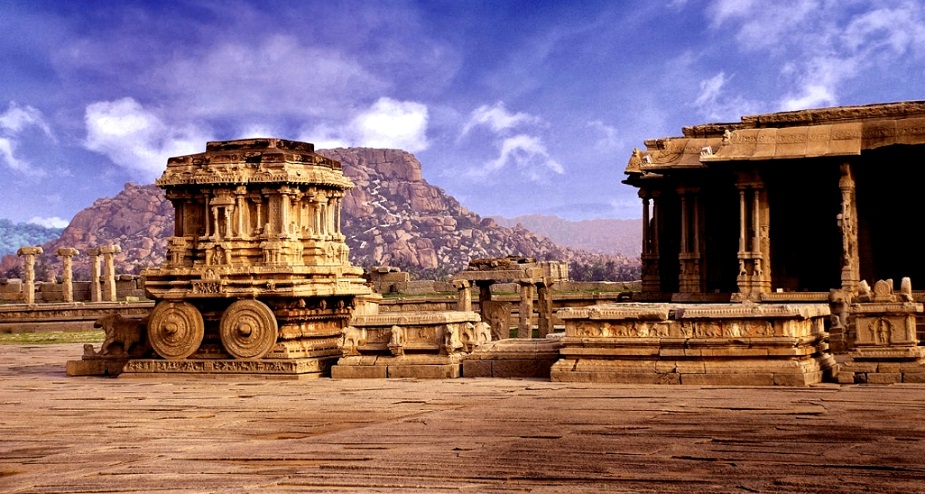Technical Skills
Soft Skills
History and Decision Making

About the Course
“History & Decision Making,” a comprehensive course designed to bridge the realms of historical understanding and the intricacies of decision-making processes. This course delves into key epochs of human history, unraveling the complexities of pivotal moments and their influence on decision-making.
This course is divided into various units, each meticulously crafted to provide a deep understanding of historical contexts and their direct correlation to decision-making. From exploring diverse perceptions of the Indic past to analyzing the rise of empires, the evolution of cultural patterns, and the transition to early medieval India, this course navigates through significant epochs with a critical lens.
Course Objectives
- Gain insight into Oriental, Colonial, Nationalist, and Recent constructs of the Indic Past, allowing for a nuanced understanding of historical perceptions.
- Explore the textual traditions, pre-historic cultures, and proto-historical developments that contributed to the formation of Bharatavarsha.
- Study the rich corpus of Vedic literature, unravel the social geography, and delve into the forms of subsistence patterns, providing a comprehensive view of Vedic civilization.
- Analyze the making of empires, with a special focus on the Mauryan Empire, its societal structure, economic dynamics, and the policy of Dhamma under Ashoka.
- Delve into decision-making processes across different historical eras, examining strategic decisions during medieval times, and the global impact of decisions made during World Wars and the Cold War.
- Evaluate historical decisions through ethical perspectives, considering the moral implications, and explore counterfactual scenarios to understand alternative historical trajectories.
About the Instructor

Prof. Shyam Narayan Lal
University of Jammu
Professor Shyam Narayan Lal is an alumnus of the Centre for Historical Studies at Jawaharlal
Nehru University, New Delhi. Over the course of more than a quarter-century, he has devoted
himself to the pursuit of teaching history. Currently holding the position of Professor at the
University of Jammu, Professor Lal has left an indelible mark on academia.
Noteworthy is his instrumental role as the founding head of the Department of Journalism and
Media Studies, along with his service as the Director of the Centre for Studies of History and
Culture of Ladakh at the same university. Beyond his notable contributions to the academic
realm, Professor Lal has forged intimate connections with various institutions and organizations
of academic excellence.
Presently, he is engrossed in delving into the history of Jammu and Kashmir, concurrently
serving as the academic advisor of the Maharaja Gulab Singh Research Centre. Professor Lal’s
scholarly achievements are prolific, with numerous research papers and books to his credit, a
testament to his unwavering commitment to advancing knowledge in the field.
Course Units
Unit 1
a. Oriental Readings of Indic Past
b. Colonial construction of the Indic Past
c. Nationalist construct
d. Recent constructs of the Indic Past
a. Bharatavarsha in the Vedic , Epic and Puranic textual tradition
b. Landscapes and people
c. Stages of Pre historic cultures
d. Proto historical Indic cultural Developments
a. Corpus of Vedic literature
b. Social geography
c. Forms of subsistence pattern
d. Religion and rituals
a. Iron technology and the emergence of Urban centers
b. Forms of states: Democracy and Monarchy
c. Trade , currency and guilds
d. Rise of heterodox religious sects: Jainism and Budhism
Unit 2
a. The making of the Mauryan Empire
b. Society and economic and administration
c. Ashoka and his policy of Dhamma
d. The decline of the empire
a. Emergence of Satvahana in the Deccan
b. South in transit: the Age of Sangam
c. Guilds – Trade with the Roman world and Interaction with China and south-east Asia
d. Gandhara and Mathura School of Architecture
a. The rise of the Guptas Empire
b. Indic art and architecture
c. Education learning and Philosophical schools
d. Sanskritic tradition
a. Introducing the early medieval: changing contours of discourse on periodization
b. Rise of the Regional kingdom and the changing form of polity
c. Religious and the Cultural Processes : Rise of Puranic Hinduism,
d. Tantricism, Integration of local cults and making of temples and Tirthas
Unit 3
a. Oriental Readings of Indic Past
b. Colonial construction of the Indic Past
c. Nationalist construct
d. Recent constructs of the Indic Past